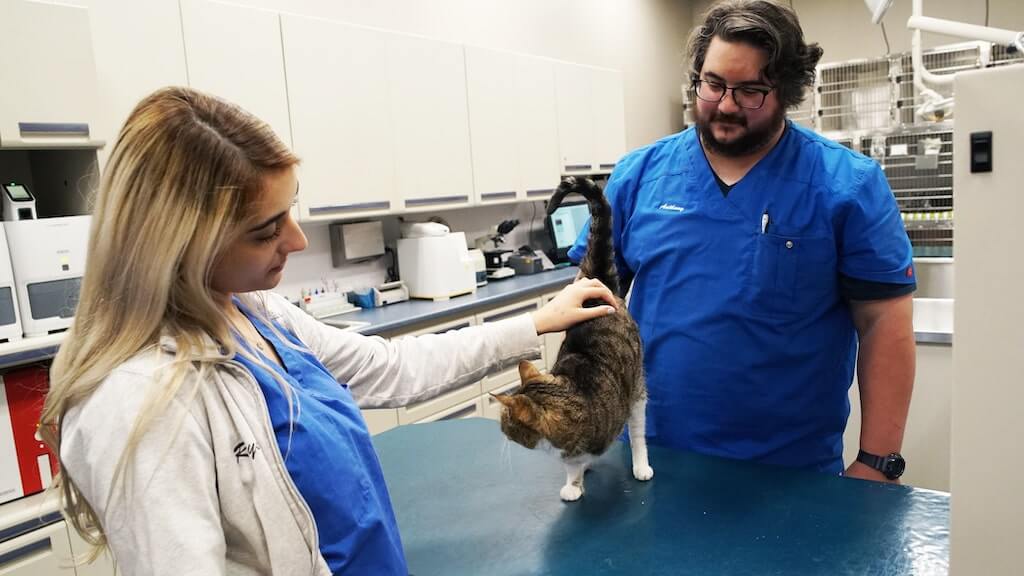Allergy and Dermatology Treatments Make Happy Pets in Staten Island

If your pet is happy, chances are that they are healthy inside and outside. But if you notice your pet is scratching and itching a lot, it may be more than just dry skin. Scratching and itching is sometimes the sign of a medical issue. Problems like parasites, allergies, fungal and bacterial infections, skin cancer, endocrine (hormonal) problems, and some forms of skin disease can all affect your pet’s skin adversely.
Allergies
Allergies are oversensitive reactions of your pet’s immune system to substances in their environment that are usually harmless. Many people believe allergies only bother pets during the summer months, but cats and dogs often have indoor allergies as well. Frequent biting, scratching, or chewing is very uncomfortable for your pet and they can result in secondary infections of the skin. There are a few categories under which animal allergies fall: things that the pet rubs against; the diet of your pet; inhalants like pollen, mold, or dust; or parasites. The solutions that are best for your pet are going to vary based on the allergen type. Our vets might recommend one or more of the following: skin medication, parasite treatment, topical and shampoo therapies, and diets specifically for skin issues.
Parasites
There are quite a few parasites that lead to skin problems for cats and dogs. Ticks, fleas, lice, and chiggers may lead to excessive biting and scratching which results in wounds, scabs, secondary infections of the skin, hair loss, and redness. One of the most common and troublesome parasites are mites. If there are sarcoptic mites, the humans in the household can also catch them. These are also called red mange or scabies, and they burrow beneath the skin and cause skin lesions and intense itching. Ear mites can be passed from pet to pet and cause ear infections and severe itching in cats and dogs.
Diseases and Infections
A lot of bacterial infections of the skin have another cause, like an infestation of parasites, immune system or hormonal disorder, or some kind of allergy. If this cause isn’t appropriately treated, there’s a good chance that the infection is going to return. Our veterinarians might recommend treatment for the cause of the infection and antibiotics, which come in various forms including injections, shampoos, ointments, gels, pills, and sprays.
Solution
Skin disease treatments might include antibiotics, steroids, topical drugs, antihistamines, rinses and shampoos, antifungal drugs, or dietary supplements. Most of the skin conditions are able to be cured or managed at the very least. It doesn’t matter what caused the skin problem of your pet, it’s possible to ease their suffering. When your pet’s suffering is eased, you both will feel much better.
